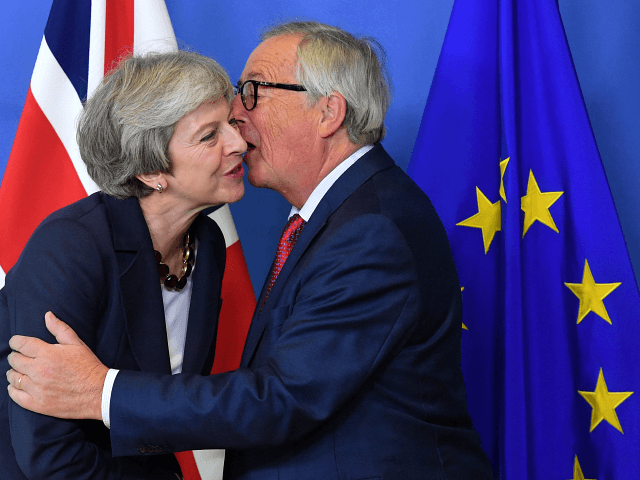Theresa May’s position in Europe does not appear to have been strengthened after she survived a vote of no confidence in her leadership by Tory MPs, with European Union leaders granting her just ten minutes of their time to discuss changes to the “worst deal in history” which she has negotiated with the bloc.
Mrs May leads a minority government which has so far been unable to pass her deal through Parliament in the face of a united front of Brexiteer MPs in her own party, left-wing opposition MPs, and MPs for Northern Ireland’s Democratic Unionist Party (DUP), which furnishes her with a parliamentary majority via a “confidence and supply” arrangement.
She has embarked on a whistlestop tour of EU capitals to try and win more concessions on the deal’s contentious backstop provisions in order to alter the parliamentary arithmetic, but, despite all the concessions she has made to them, her EU counterparts seem indisposed to lend a helping hand.
The prime minister’s team may have hoped the EU would be prepared to offer some at least cosmetic changes to the deal after she saw off the attempt to oust her by Brexiteer MPs, who would have been likely to junk the agreement with altogether and pursue a “No Deal” exit — costing Brussels the £39 billion she has agreed to hand over — in order to give her a better chance of getting the deal through the House of Commons.
However, European Commission chief Jean-Claude Juncker declared even before the no confidence vote that there was “no room whatsoever for renegotiation” of the Withdrawal Agreement, only “further clarifications and interpretations” of the existing text.
European Council boss Donald Tusk struck an equally uncompromising tone, adding — unlike the prime minister — that the EU would step up preparation for “No Deal” in case talks fell through.
This strategy of attempting to bend the British government until it breaks appears to remain in place, with the EU technocrats telling The Telegraph that the bloc intends to give her just ten minutes to plead a case for the changes which she thinks will give her a chance of securing parliamentary support for the Withdrawal Agreement.
“Politically she can have all the warm words she wants, but it was very clear in the meeting that there is very little appetite indeed for anything legally binding,” a senior EU diplomatic source told the newspaper.
In Germany, too, which remains the driving force in the EU despite Chancellor Angela Merkel’s wounded state, the Bundestag (federal parliament) has passed an unusually robust motion vowing that there will be no compromise with Mrs May.
German lawmakers backed a motion asserting in no uncertain terms that “it would be an illusion to hope that a rejection of the deal could lead to renegotiations”.
The prime minister is yet to directly address any of her EU partners’ statements that her deal is not up for discussion in any meaningful way.

COMMENTS
Please let us know if you're having issues with commenting.